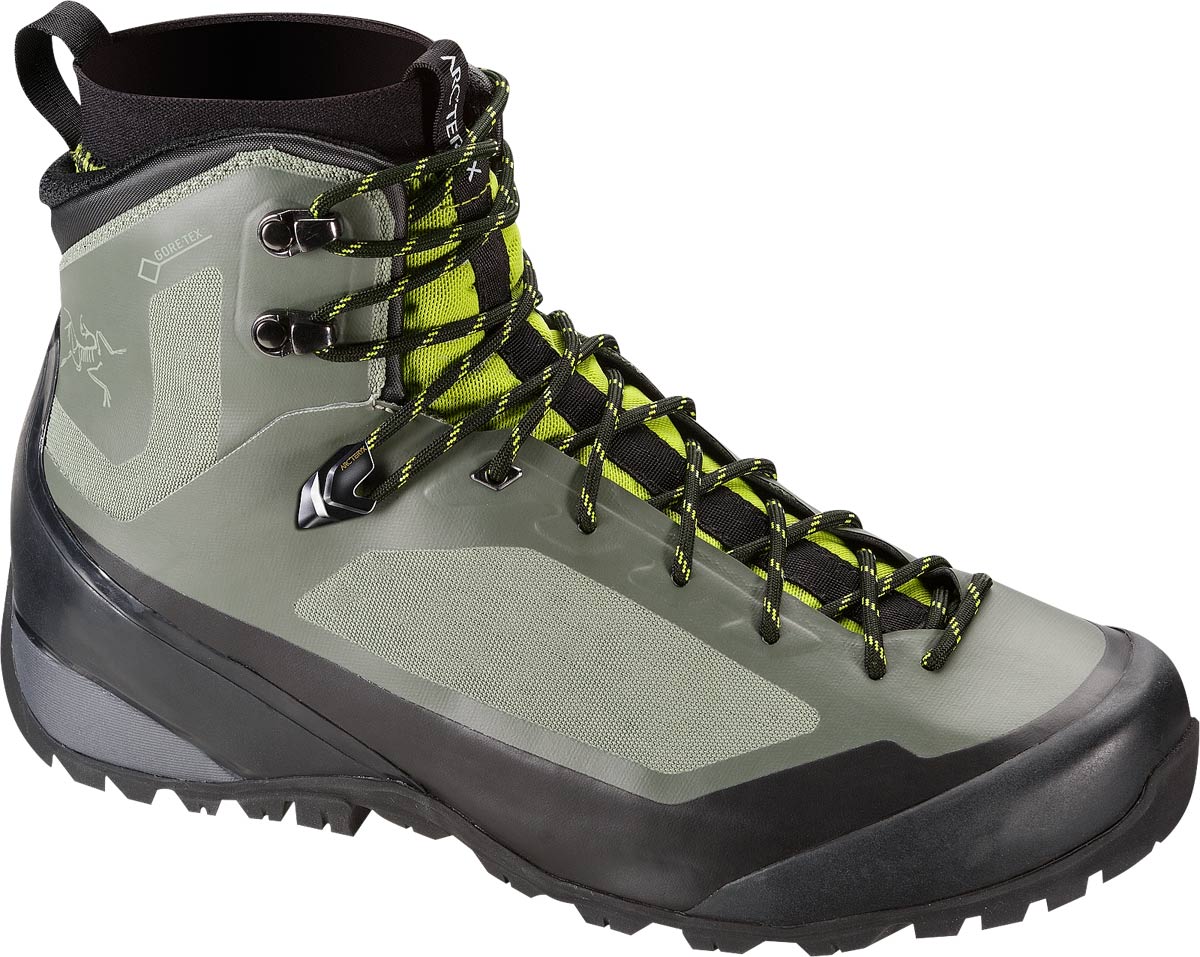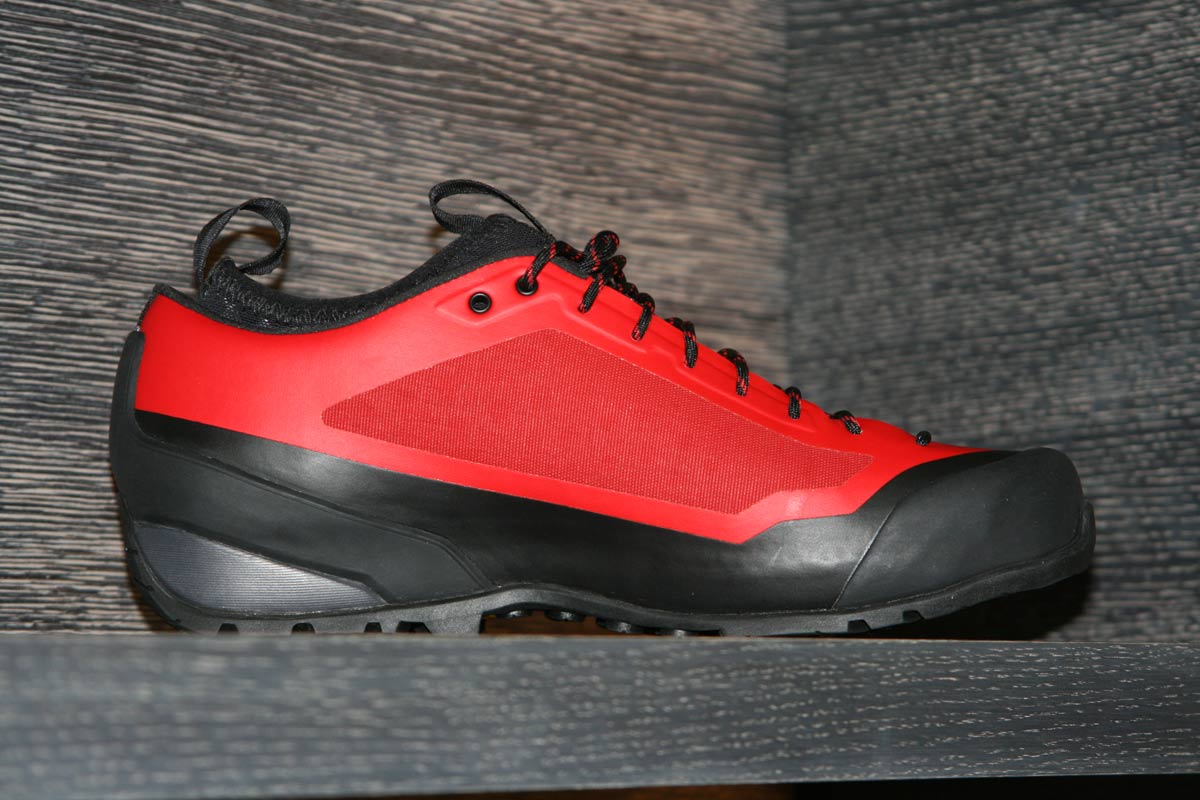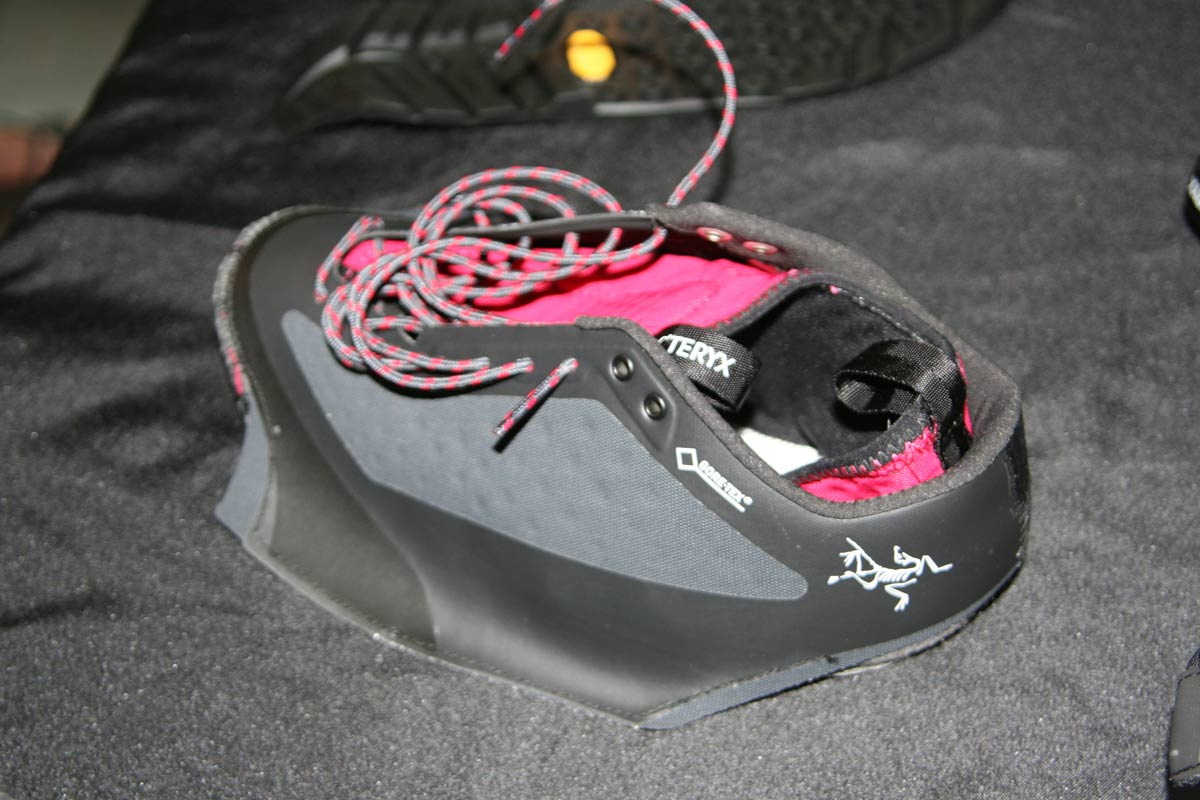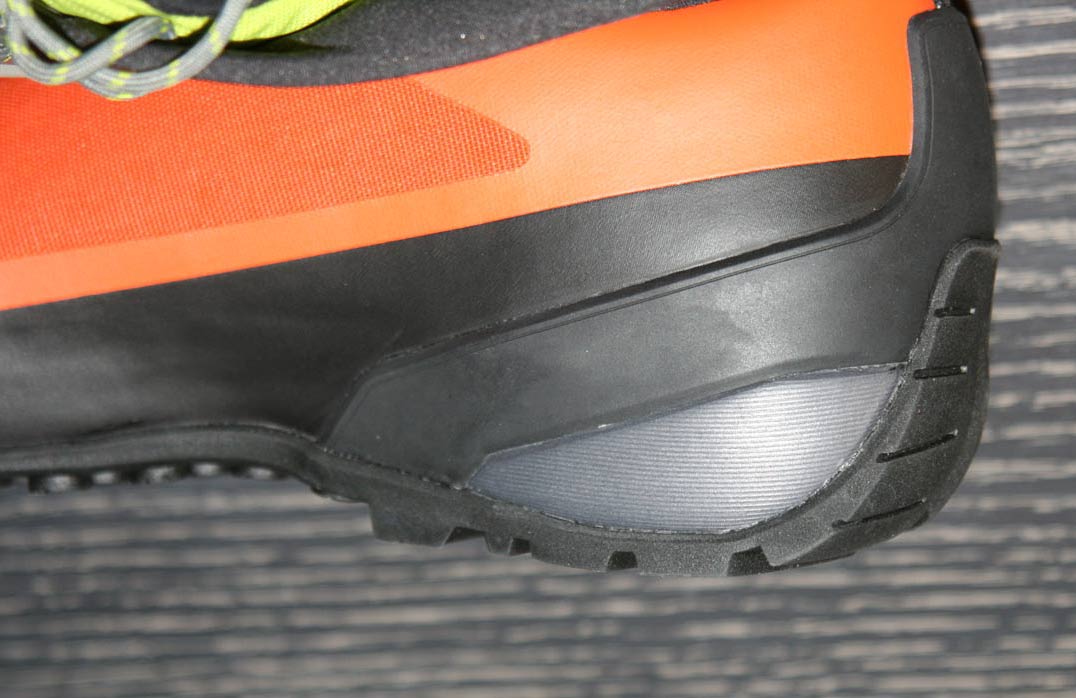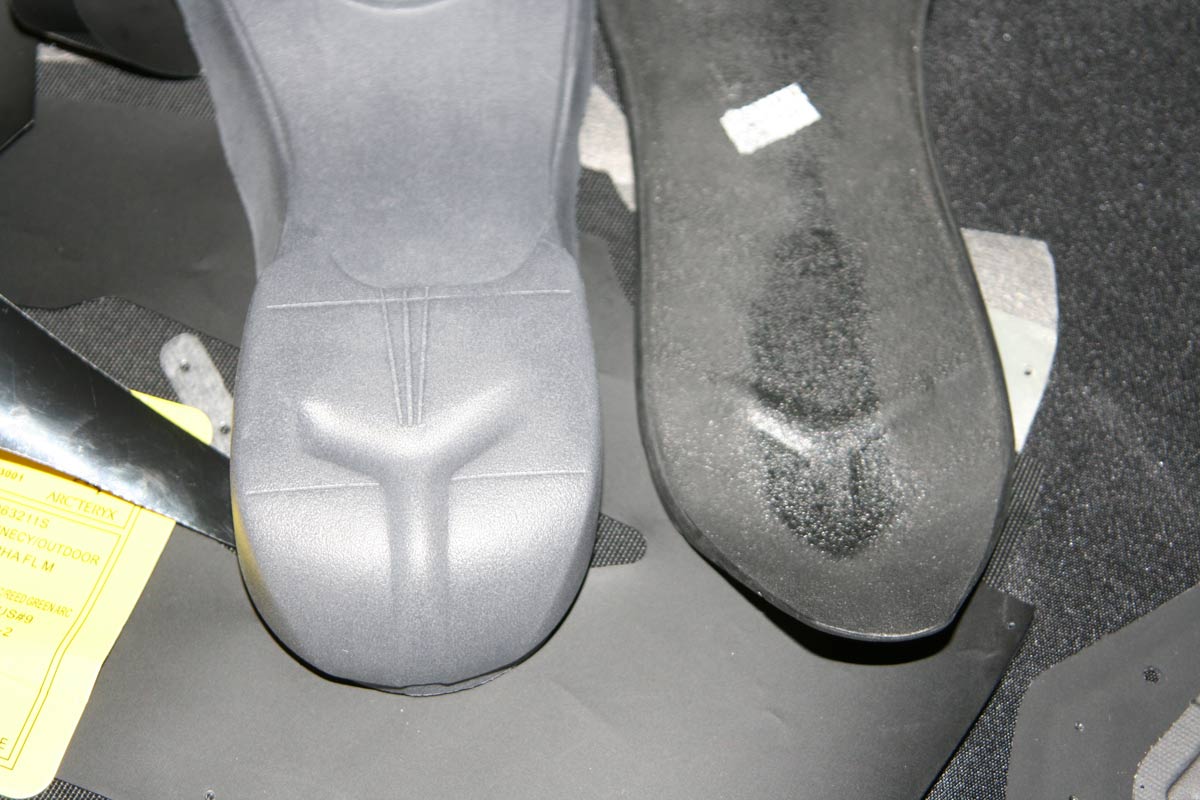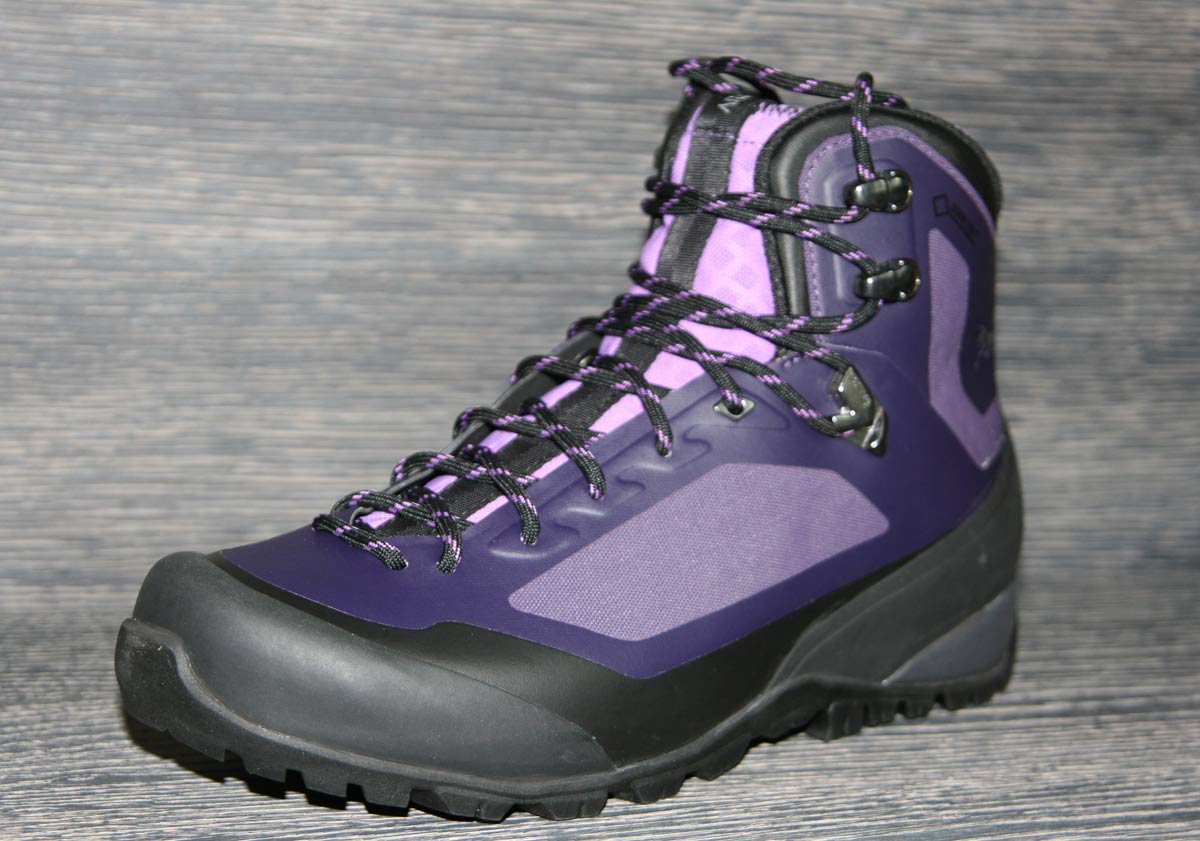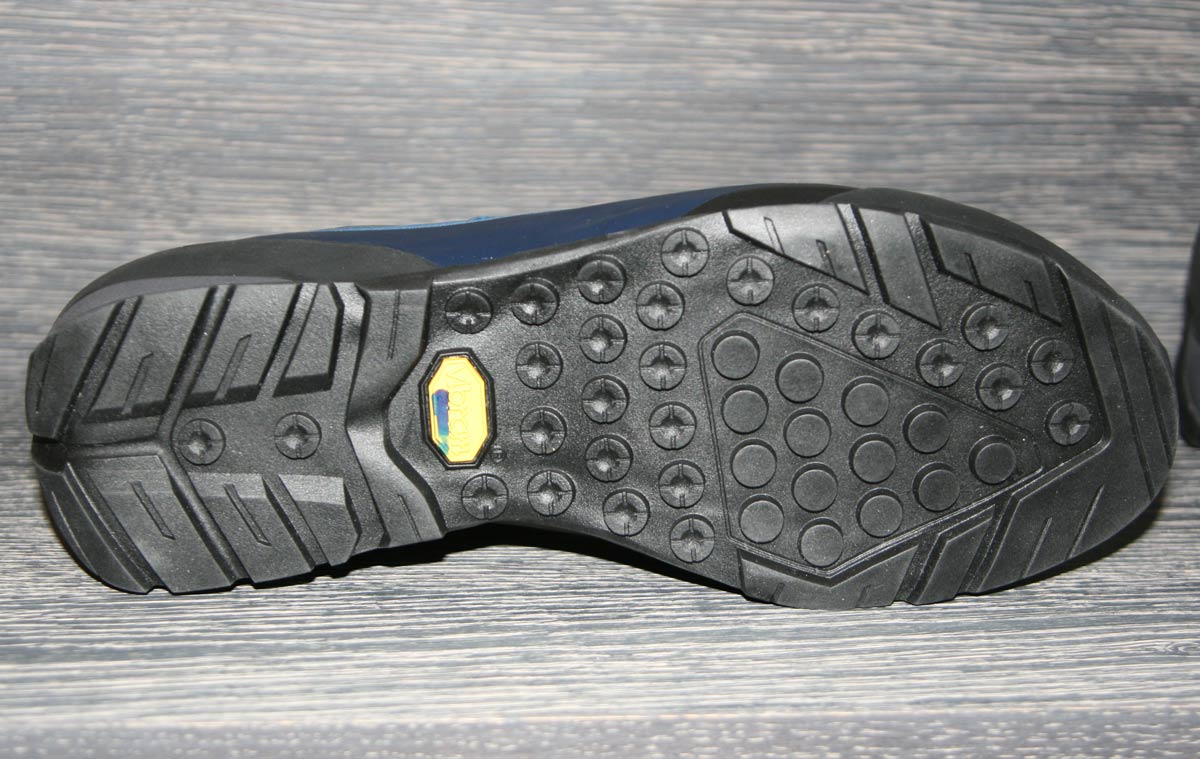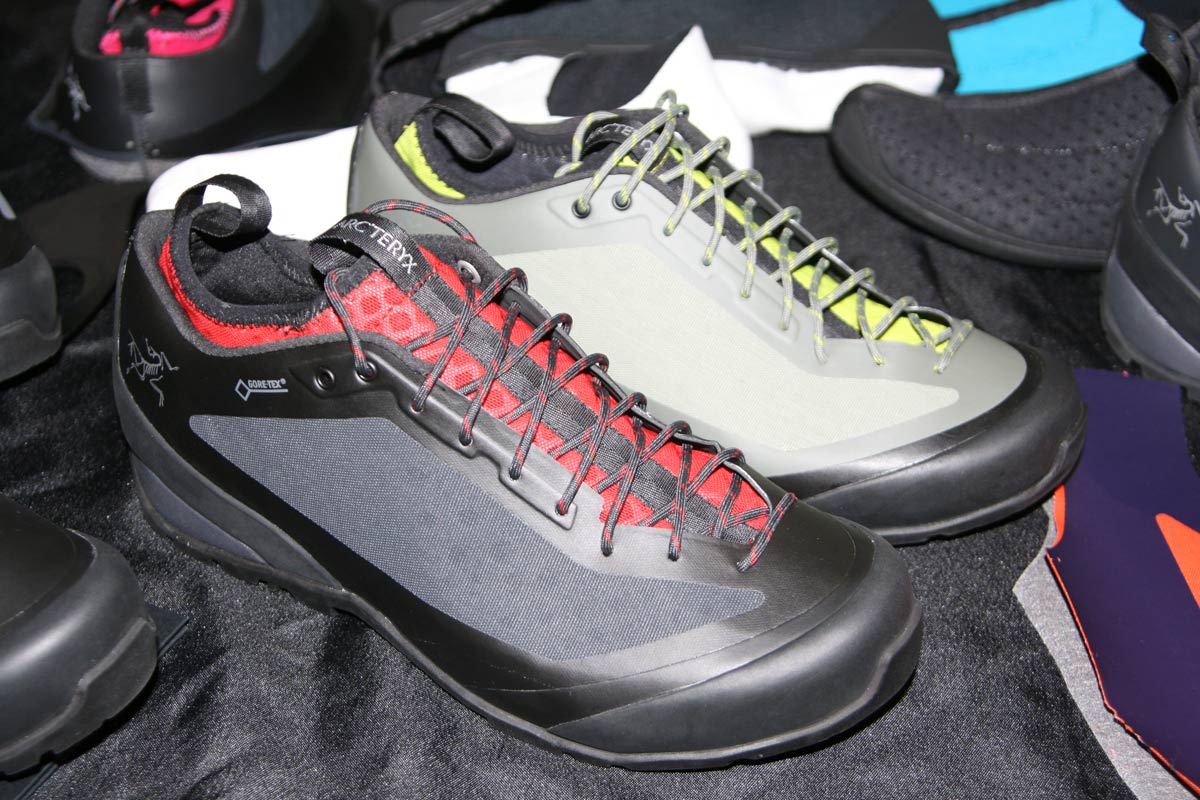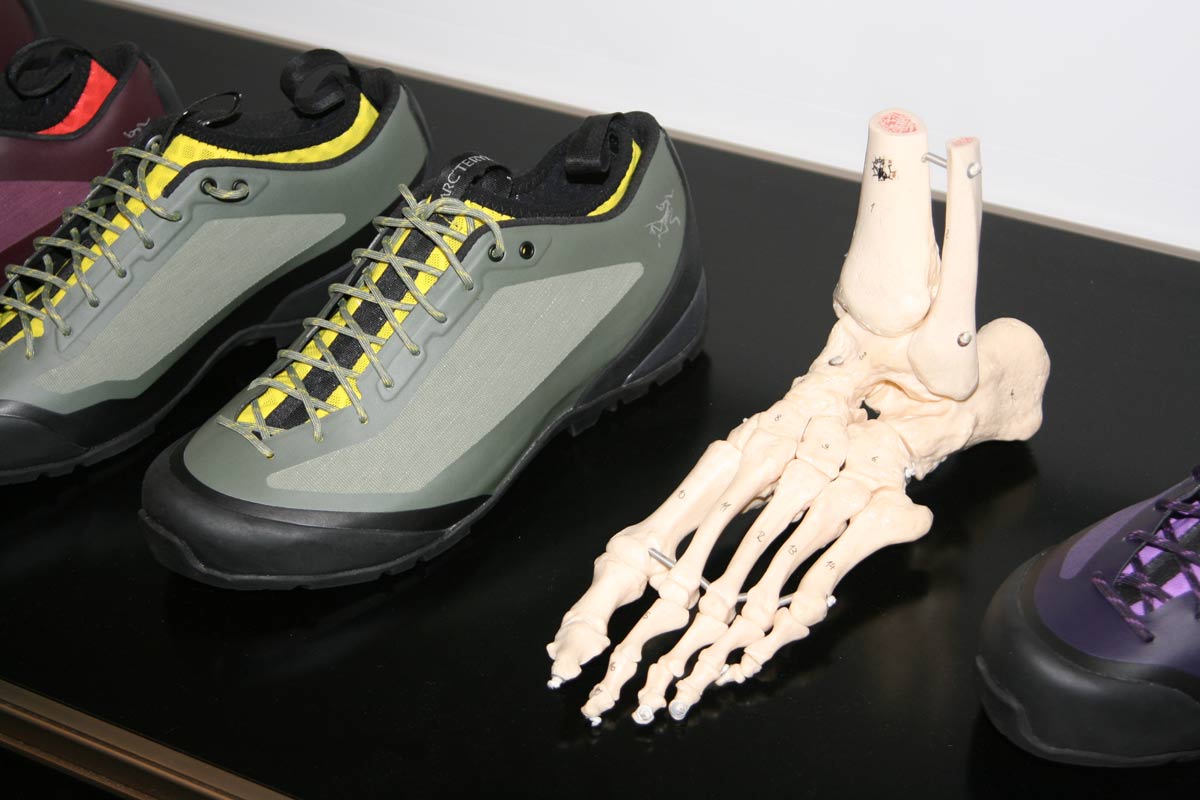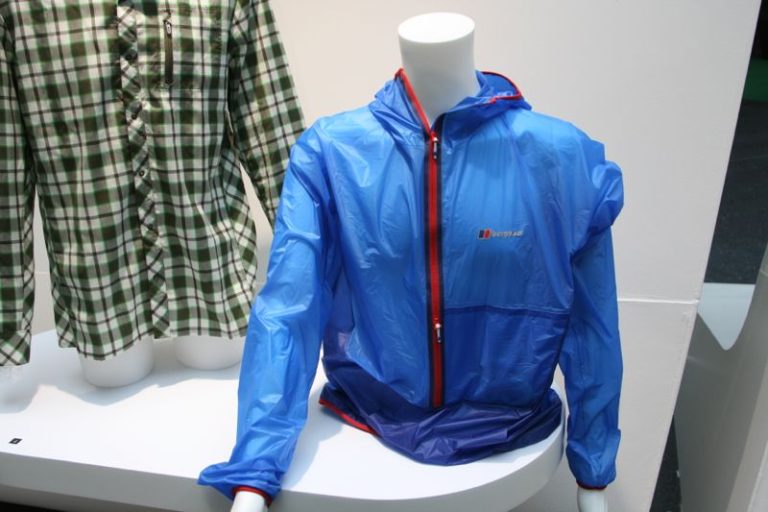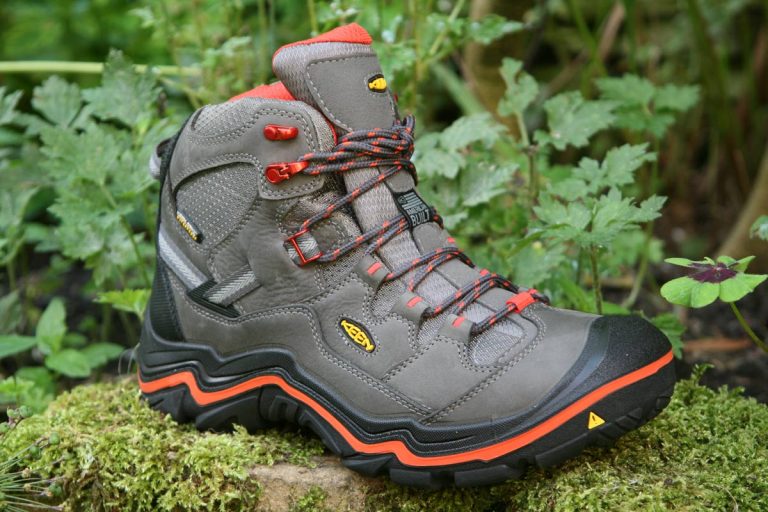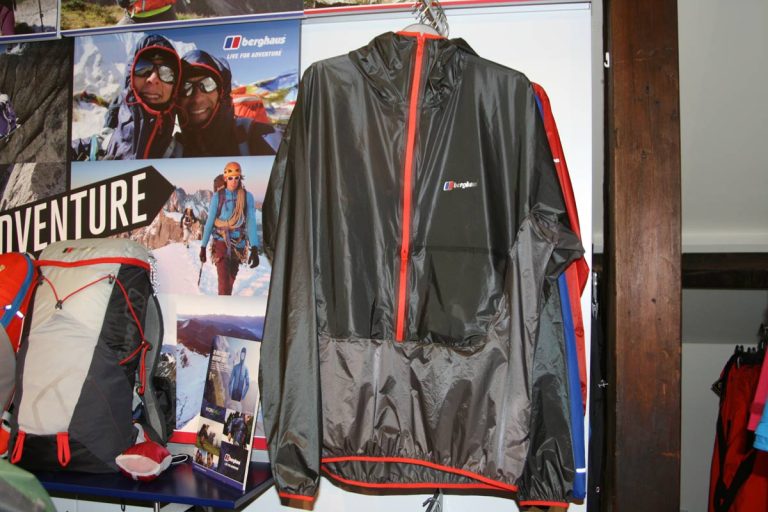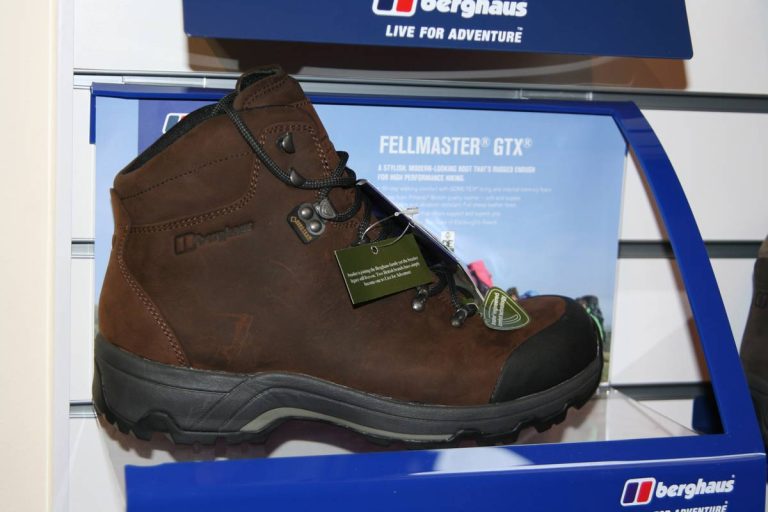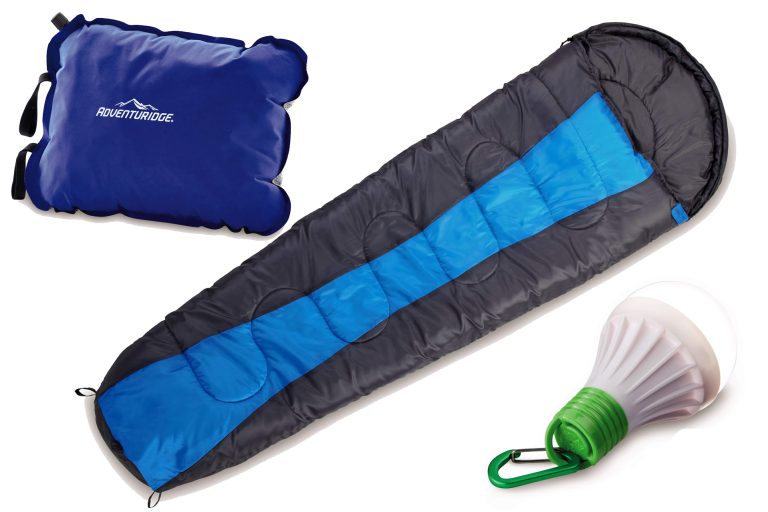Arc’teryx Launches New Footwear Line
You’d think there wasn’t much new you could do with outdoor footwear right? Well, no-one told the guys at Canadian tech-masters Arc’teryx that and the result is a new range of Alpha shoes and Bora mids due out in Spring 2015, which looks genuinely innovative and different from pretty much anything else we’ve seen.
Lamination Ninjas
In an odd way though, thats almost predictable. The brand has a long and proud tradition of thinking outside the box, then implementing those ideas with ninja-like precision and pain-staking craftsmanship, so you’d expect more of the same from its first footwear collection.
Plenty of the stuff we now take for granted in top-end outdoor clothing was introduced by Arc’teryx including lamination, urethane-coated, water-resistant zips, zipper garages and super skinny, weight-sacing, precision seam tape.
Arc’teryx Adaptive Fit
So what does that mean for footwear? Plenty it turns out with the brand going back to first principles and something it calls ‘Arc’teryx Adaptive Fit’, a system which uses separately made inner and outer shoes, a bit like traditional plastic boots, but at a much more sophisticated level.
The inner shoe, which is removable in the top-end models, is made from a Gore-Tex® Performance ComfortTM Stretch membrane combined with air-permeable EVA foam. The whole thing is waterproof, breathable, has no tongue and has been constructed to minimise the amount of glue used and the number of seams.
Soft And Stretchy
The whole liner is stretchy, soft and – this where the ‘adaptive’ bit comes in – designed to conform to different foot shapes for maximum comfort. ‘Instant custom fit with no pressure’ says the blurb.
And because, in the top-end models at least, you can remove the inner, you can dry it separately and quickly, use it as a hut slipper – there’s a rubberised fabric on the base – or even opt for alternative warmer versions or wear the mid-length liner in the shoe for better water protection. It’s light too.
Note that only the top-end versions of both the shoe and the mid have the removable liner, the more standard models use the same technology, but you can’t take out the liner for drying.
Both though have a small air gap between inner and outer boot which Arc’teryx says improves air permeability and helps keep your feet comfortable when the going gets sweaty.
Seamless One-Piece Upper
So that’s the inside bit, but what about the outer? Well, it too looks pretty different from anything else we’ve seen. For a start it’s a single piece construction made from five layers of material which have been thermo-laminated together – lamination is a big deal to Arc’teryx and at the heart of a lot of their meticulously engineered jackets, packs and harnesses.
The main fabric is made from a light, tough, air-permeable TPU-coated Nylon yarn with additional reinforcing TPU films all heat-laminated together. What you need to know is that it’s tough, light and hydrophobic, so it should absorb very little water and, claims the brand, be ‘the fastest drying shoe on the market’.
It also sounds like good news for Brits, but then the guys from Vancouver were keen to stress its Mordor-like, soaking-wet weather credentials, so maybe that’s not such a big surprise.
Save Our Soles
There’s other clever stuff going on too. The upper encloses the light but slightly fragile running shoe-style EVA foam mid-sole and protects it from abrasion damage. The toe and heel bumpers are pre-curved and shaped to reduce stresses. They’re also moulded with variable thickness to put oomph where it’s needed without adding excess weight.
At the heel, there’s a free-floating Y-channel area where the outsole and mid aren’t actually bonded to give better mobility in this area and the heel itself is rounded rather than sharp-edged to put as much rubber on the ground as possible on descents.
Vibram Outsoles
There’s a conventional-looking TPU plate to add stiffness and stability underfoot and finally, Arc’teryx has worked with Vibram to create two exclusive outsole units. One for the approach shoe designed with a sticky Megagrip rubber, climbing-friendly forefoot mixed with a heel area that has a more ‘mountaineering’ feel for purposeful walk-ins.
Meanwhile the Mid version is aimed more at all-round hiking, has a more durable, but still grippy rubber compound and big fat lugs for all-round traction, though it also has a climbing zone up front. Both versions get that rounded ‘spherical heel shape’ for improved braking and a rolling stride.
Shoe And Mid Versions
As we said above, there are low-cut shoe and mid versions, with a total of eight different models for men and women. There were a bunch of them scattered around the Arc’eryx launch hotel in a variety of colours ranging from Brit-friendly blacks and greys through to extrovert reds and purples. The shoes are called Alpa and boots or mids.
Alpha Shoes
The top-end über shoe is the ALPHA2 FL which has the removable, stretchy, adaptive Gore-Tex liner, which you can swap out for a mid-height insulated Gore-Tex liner if you choose, say for winter or expedition walk-in use giving it a bit of year-round versatility.
It features that sticky sole and weighs a claimed 480g per shoe in a UK 8.5. Disappointingly, there’s doesn’t appear to be an ALPHA FL2 version for women, just a standard FL GTX with a non-removable liner, though it still has the same technology and adaptive fit and is otherwise the same, though a claimed 50g lighter.
Finally there’s a standard non-Gore-Tex FL for both men and women, which uses a stretch nylon with air permeable EVSA instead of Gore-Tex and is designed for hot weather conditions where breathability is crucial. Shame there isn’t a removable version for the FL2, which would make it truly year round.
Bora Boots
The hiking boots echo the specs of the shoe range. The top-end version with a removable liner and optional insulated, warmer mid is the BORA2 Mid. It weighs in at 560g per shoe, which is light-ish for a boot and just 80g per foot more than the shoe.
Next models down are the BORA MID GTX Women’s and Men’s, both with non-removable liners – saving 60g per boot, but presumably with an increase in drying times. Again there’s no BORA2 for women. We’re not sure whether that’s going to be an issue or not.
In principle it seems plain wrong, but unless you think you want to swap liners, wash them regularly – they are washable – or there’s a big difference in drying times between the two models, we’re not sure it’s really that important as otherwise the shoes are identical.
Some Thoughts
The one thing that no-one really talked about during the launch was pricing and you won’t be surprised to hear that the new footwear isn’t going to be cheap given the innovative design, top-notch components and the brand.
So how much? At the moment we only have prices for the top-end stuff and they’re £250 for the ALPHA2 and £275 for the equivalent Bora. No, that’s not cheap, but then Arc’teryx is all about uncompromised performance and top-notch construction. We don’t have prices for the other models or replacement liners yet, but we suspect they’ll also be premium.
Of course the nub of it all is how the shoes work. For us Brits the combination of a hydrophobic, non-absorbent outer and a fast-drying, waterproof inner boot sounds like a dream solution – wear, soak, dry overnight, good to go – spot on for the great British summer.
But also potentially ideal for trekking use in variable climates. Hell, you could even throw in a pair of spare insulated liners in case things get cold and snowy high up at just 160g per foot.
The other thing we’re looking forward to finding out is just how adaptive that liner actually is, because ultimately comfort with footwear is all about the fit and a balance between support and cushioning and shape.
The good news is that our feet were measured at the launch and we should have a pair of the new shoes to play with some time in the next month or so and we’ll let you know how we get on in due course.
And like we said at the beginning, you might think that there’s nothing much new you can do with outdoors footwear and you might just be wrong.
More information on the current Arc’terxy range at www.arcteryx.com.

